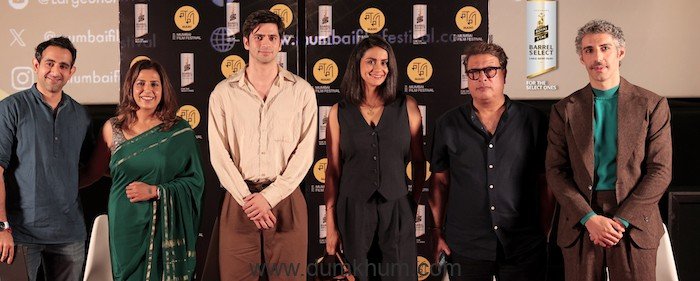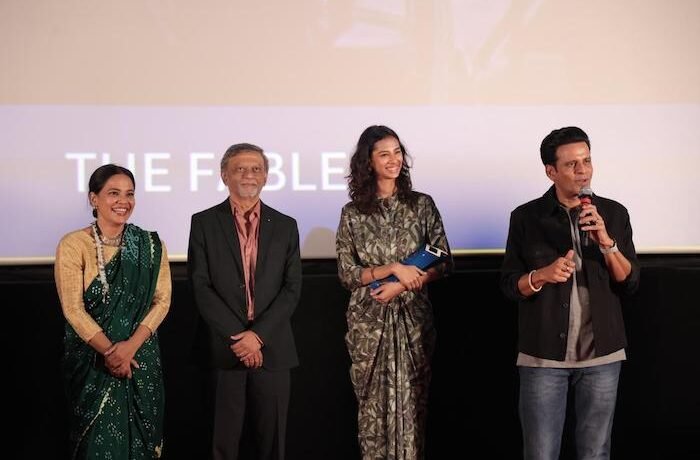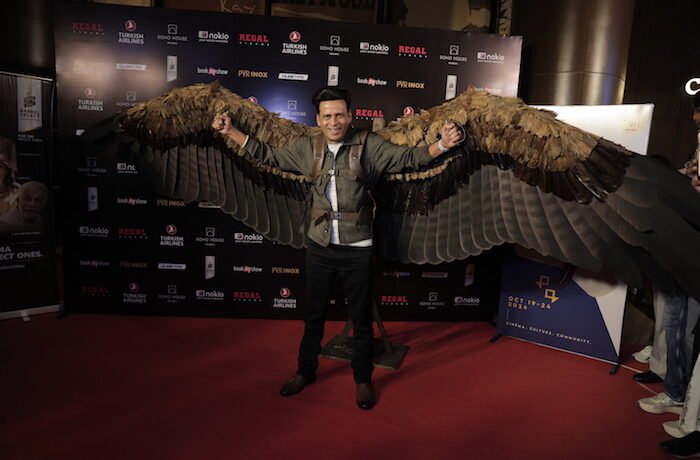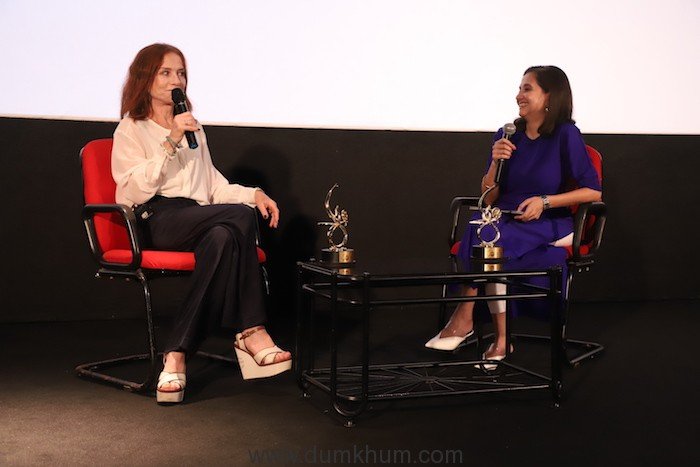French Actress Isabelle Huppert was awarded with Lifetime Achievement Award at the 50th edition of International Film Festival of India (IFFI) Goa.
A day after, On day 1 of the Film Festival, she spoke about her films and her journey over 100 films, with Film Critic Anupama Chopra. When asked about her prep work for a film, Isabelle said, “You can’t really do much prep because it depends on a lot of things. How is the scene going to be shot, close ups or long shots, how the other actor is going to respond etc…Director is the key peace in the ensemble. It’s all about trust. It makes it very easy.”
On asked how long did it take her to say yes to her film Elle since it was a very complex character, Huppert answered that It didn’t take long at all. “It was based on a book. I read the book and met the author philippe Djia who I knew from before. He said he wrote the book keeping me in mind”
On asked if working with accomplished actors and in so many films has changed her at all. She laughed and said, “I don’t think so. I don’t think I have improved.” On being asked if directors gave her any input on her characters. She said, “My directors gave me freedom.”
I am sure none of them had a courage to act asked Anupama Chopra laughing
“It’s not matter of courage but smartness.” Smiled the actress.
Isabelle also worked in a play called The Mother and then there is a French series Ten percent that is streaming on Netflix with an English name called My Agent where she starred.
Is there a difference between the mediums?
“I Don’t feel different as an actress but it’s a different process for sure.” Huppert said.
There have been a lot of conversations about how stars should be responsible. Are you worried about messaging?
“If you want to send messages, you have post offices. Said Micheal Haneke. I am happy to quote him. You can do objective debate…it’s the same thing with painting, art, music.”
How does she look at the future of cinema as there are many new avenues now? “I am very optimistic. Cinema has a future, I think so. M very optimistic.” Huppert concluded.












